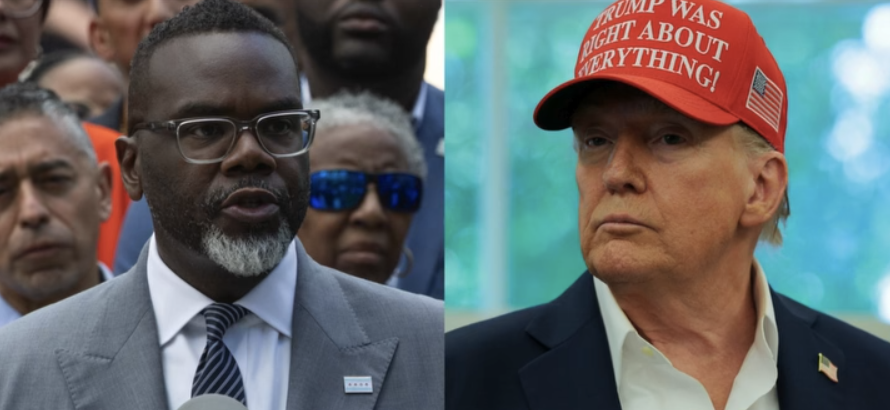Chicago Clashes with Trump Administration over Johnson’s Executive Order
Chicago is once again at the center of a national debate over crime, policing, and federal authority. Over the Labor Day weekend, the city endured another wave of gun violence that left several people dead and dozens more injured. Days later, Mayor Brandon Johnson signed an executive order sharply limiting cooperation between the Chicago Police Department and federal law enforcement — a move that immediately drew fire from Washington.
Johnson’s Order
Standing alongside Illinois Gov. J.B. Pritzker, Johnson announced the order as a measure to safeguard transparency and community trust. The directive prohibits Chicago police from joining National Guard patrols, participating in federal arrests, or engaging in immigration enforcement operations.
It also mandates that officers remain visibly identifiable at all times — requiring CPD insignia, name badges, and agency markings — while banning face coverings and requiring the use of body cameras during public interactions.
“These measures are about accountability,” Johnson said. “Chicagoans deserve to know who is policing their neighborhoods and that their rights are being respected.”
Federal Pushback
The Trump administration wasted little time in dismissing the move. White House spokeswoman Abigail Jackson called Johnson’s order “political theater,” accusing Democrats of staging a fight with the president instead of tackling violent crime in their own cities.
The dispute follows signals from the administration that federal agents — and potentially the National Guard — could be deployed in major cities to confront violent crime and illegal immigration. Chicago, long singled out by Republicans as emblematic of Democratic mismanagement, has become a recurring flashpoint.
A Legal and Political Standoff
The clash raises a broader constitutional question: how far can local governments go in resisting federal law enforcement actions? Legal experts say the issue may ultimately be decided in court.
For now, the standoff underscores the competing pressures Johnson faces — balancing community demands for accountability and local autonomy against the reality of persistent gun violence. Chicago residents, caught between political battles in City Hall and Washington, continue to wait for concrete solutions that can bring both safety and trust to their neighborhoods.
